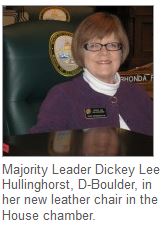It’s not uncommon for interest groups or local governments to go into defense-lobbying mode once they see a bill put forward that they don’t like or even once they hear the details of a bill before its introduction.
But Aurora officials on Thursday launched a pre-emptive strike against a bill to hurt the proposed Gaylord Rockies project that they feel is coming — even though they don’t know what its details might be or who might be sponsoring it.
Members of Aurora’s legislative delegation are writing a letter to colleagues in the Colorado House and Senate letting them know their concerns and pleading for a fair and open process.
“We are concerned that anything that would shut down this project or anything that would affect the decision-making process of the Economic Development Commission would just close business in Colorado,” Hogan said. “If the rules are changed after they’ve been made, it is going to make it difficult for any business sector to come to Colorado with any confidence.” Continue reading


